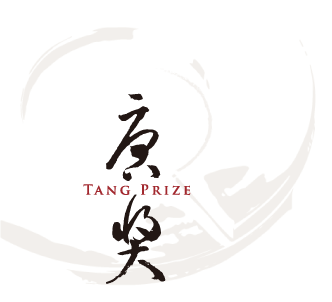 |
|
Tang Prize Newsletter |
Tang Prize Foundation Newsletter, Issue 3, September 2015 |
|
|
Headlines
|
|
|
|
News Briefs
|
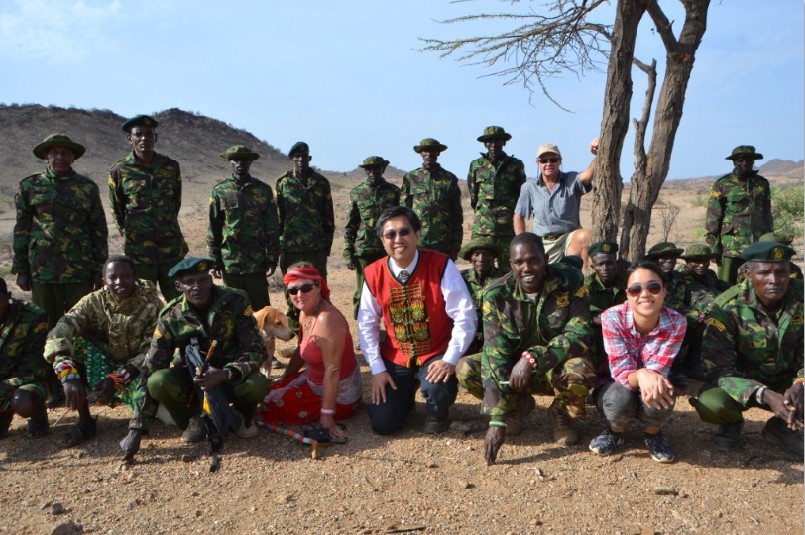 An Elephantine Task: Gro Brundtland Promotes Preservation and Sustainability in Kenya
The Tang Prize Foundation visited Kenya on July 26 and 27 to meet with the Milgis Trust, the executor of the Tang Prize grant project from Gro Harlem Brundtland. The Trust has been in operation since 2004 and aims to "sustain the wildlife, habitat and the pastoral peoples' way of life in northern Kenya."
Brundtland, the 2014 Tang Prize Laureate in Sustainable Development, donated half of her grant (NT$5 million, approx. US$160,000) to the Milgis Trust for wildlife and cultural preservation. Famous for the seminal Brundtland Report which defined 'sustainable development,' Brundtland has spent most of her professional life in the promotion of sustainability and environmental protection.
Located in the Milgis Lugga between the Matthews range and the Ndoto mountains, the Milgis Trust operates on a local, community-based model to protect the wildlife, habitat, and the indigenous cultures of the area, all of which have been in danger of disappearing. Due to the continued efforts of the Trust and its locally employed, locally motivated scouts, it has been able to slow frightening trends like the killing of elephants for ivory.
The Tang Prize Foundation visited with the Trust's management and scouts in Kenya to sign the grant agreement. From the picturesque summit of Lkanto Hill sitting above the expansive Milgis Lugga, the signing was a defining moment for sustainable development and ecological preservation.
For more information about the Milgis Trust, visit here>>
And be sure to visit the Milgis Trust website>>
|
|
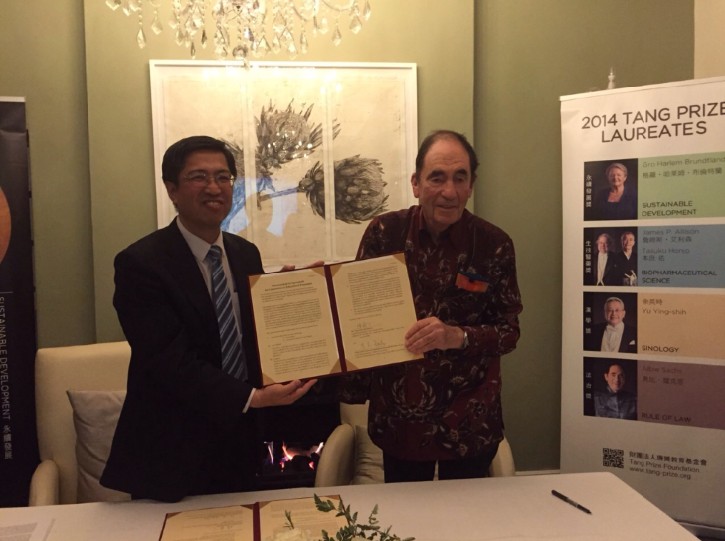 Grant Projects from the 2014 Laureates
Every two years, the Tang Prize awards the most outstanding individuals in its four fields. These individuals receive the Tang Prize Medal and Diploma, and a cash prize of NT$40 million (approx. US$1.33 million). But one thing that sets the Tang Prize apart from other academic awards is that the prize money comes with an additional grant of NT$10 million (approx. US$330,000). The grant may be divided among any institutions or individuals of the laureate's choosing, and is meant to improve the research, education, and scholarship of the field in which the laureate has been awarded.
Grant proposals from the 2014 laureates have already begun to take shape. For the proposal from inaugural laureate in Rule of Law Albie Sachs (pictured at top), a former Justice of the Constitutional Court of South Africa, this included the founding of a trust that will manage his projects: the chronicling and telling of two stories, namely of the Constitution and the Constitutional Court of South Africa. The information will be made available to the world, giving the generations to come a valuable reference for transitional law and democratization.
Following the meeting and signing with the trustees and founder of the Albie Sachs Trust for Constitutionalism and the Rule of Law, the Tang Prize Foundation visited Kenya to meet with the Milgis Trust, the executor of the Tang Prize grant project from Gro Harlem Brundtland. (See full story above)
In Taiwan, two grant plans are now in operation. The first, National Cheng Kung University (pictured at center) plans to hold a "Gro Brundtland Week of Women in Sustainable Development." Distinguished young female researchers from developing countries will visit Taiwan to engage in talks with local female scientists, furthering equal opportunity in science and opening up new sources of innovation for sustainable development.
The second is the plan from Tang Prize Laureate in Sinology Yu Ying-shih, who donated his grant to the founding of a new fellowship, the “Yu Ying-shih Fellowship for the Humanities” (signing pictured at bottom). Active from May 2015 through 2019, the fellowship is intended to support promising researchers and scholars in the humanities fields with the financial assistance needed to complete dissertations and other larger academic works. Applications for the 2015 fellowship ended Monday, August 31.
Read more about the Tang Prize Grant projects>>
|
|
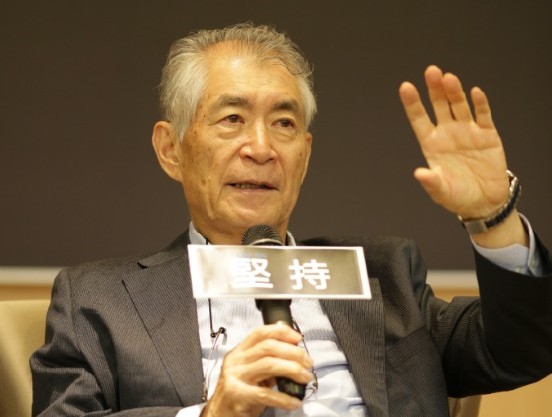 Tang Prize Laureate to Students: Stay Curious!
Inaugural Tang Prize Laureate in Biopharmaceutical Science Tasuku Honjo delivered a talk to an audience of 150-plus students and bioscience enthusiasts June 29 at National Taiwan University. After telling the story of his research in immunotherapy in cancer treatment, he was joined by NTU biology students for roundtable discussion. Among the topics were future challenges for cancer treatment and perseverance on the long road of research.
To a young crowd just beginning to consider a career in the sciences, Honjo's experience was a valuable point of reference. On the question of money, Honjo says that he himself was poor in his early life, so making more than necessary was never high on his list of priorities. Instead he spent his energy on learning and research. He says that while there are still many opportunities for work, students have lost the essential quality of the scientific endeavor: to be curious and ask questions.
He encouraged young people to find and challenge themselves with the questions that excite them, which, he points out, is what it means to be a scientist. A scientist holds curiosity and skepticism close to the heart, even when this means not accepting as dogma what is written in the textbooks.
Confidence and courage also play a large role in searching out the answers to Mother Nature's big questions, because just like in nature, there is failure and hardship. Today's academic world is highly competitive and places the focus on publishing new work; that often means that researchers find easy—but trivial—questions to answer, just to keep up. That should not discourage students from thinking about the deeper, subtler questions, Honjo says.
Industry and academia, not often close partners, should work together to benefit more people, added Honjo. He suggests building a mechanism that better funnels the profits of biopharmaceutical companies back to the researchers who do the basic research that leads, in a feedback loop, to new pharmaceuticals and a better quality of life.
Watch Prof. Honjo's talk here>>
|
|
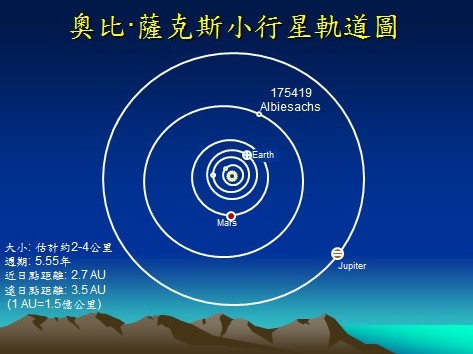   NCU Names Asteroid After Laureate
Galileo, Magellan, Beethoven, and Albie Sachs all share one thing in common—their names are writ in the stars. An asteroid discovered nearly 10 years ago has recently been named in honor of Albie Sachs, Tang Prize Laureate and former Judge on the Constitutional Court of South Africa. Taiwan National Central University, the institution that discovered the asteroid, recently gained approval from the International Astronomy Union for the asteroid naming, making it official that Asteroid 175419 will henceforth be recorded in the star charts as Asteroid Albiesachs.
A renowned professor of law and beloved speaker, Sachs began his life in law during his involvement in the anti-apartheid movements in South Africa. His work earned him a seat on the South African Constitutional Court as judge on the appointment of Nelson Mandela, and for the next 15 years he wrote many of the court's decisions and opinions. Many of the court's landmark decisions on discrimination law, such as same-sex marriage in Minister of Home Affairs v Fourie, were authored by Sachs.
Sachs was awarded the Tang Prize in the Rule of Law category in 2014, the first year of the prize, for his contributions to human rights and justice globally. (PIC Source: NCU)
Read more about Albieachs Asteroid >>
|
|
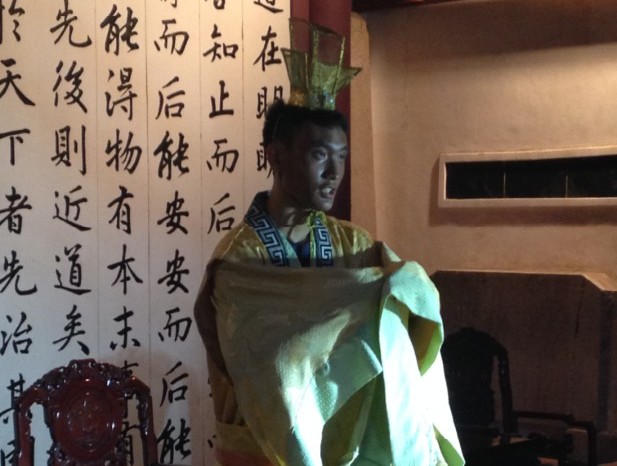   Innovation in Taiwan High Schools
From a global point of view, the focal point of the Tang Prize may be the biennial announcement and awarding of the winners, but much important work goes into the interstitial years as well. For 2014-15, the Sparking Innovation—2015 Innovation in High Schools Competition asked students at 10 high schools throughout Taiwan to brainstorm plans directed at the four fields of the Tang Prize. Twelve plans have resulted from these student think-tanks, each a way of connecting their campuses with society for mutual improvement.
Cross-campus debate, micro-movies, poetry, and Chinese "cross-talk" comedy are a few of the approaches students took into the four prize categories. Students at Kaohsiung's Municipal Senior High School imagined Confucius in a modern day Confucian temple. Such a reinterpretation of ancient philosophy for the new world is one way in which students have found a touch-point for the prize categories.
The second round of nominee high schools were announced at the end of June; the final winners will be announced at the award ceremony on November 21, when three winning teams will take away 30,000, 20,000, and 10,000 NTD in prize money.
Through the Sparking Innovation—2015 Innovation in High Schools Competition, students will get the crucial push they need to succeed in learning and innovation in their future endeavors.
Read more about high school innovation>>
|
|
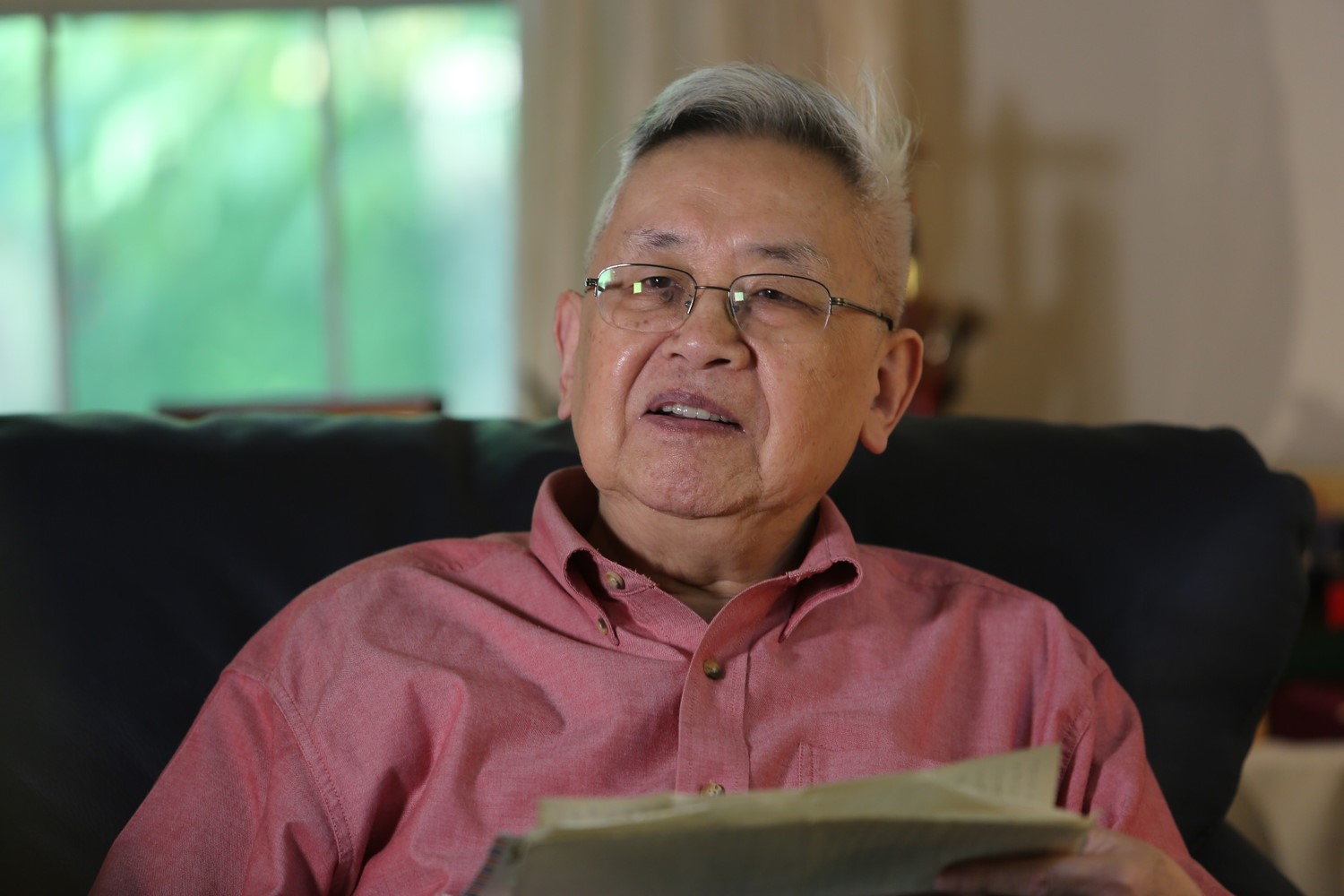   Scholars Yu Ying-Shih, Samuel Yin Recognized by CAAPS
Seen as one of the most important meetings for Chinese-American scholars and experts over a wide variety of fields, the Chinese American Academic & Professional Society (CAAPS) this year celebrated its 40th anniversary and 40th annual convention in New York on August 14-15. On top of this uncommon occasion, Yu Ying-Shih (pictured at center) and Samuel Yin (pictured at bottom) were awarded by CAAPS this year for their outstanding achievements.
Two scholars from widely differing fields, Yu and Yin have deeply influenced their respective professions. Yu has plied himself to the study of Chinese history, thought, politics, and culture for over 50 years. His work in this at once broad and deep field earned him the US Library of Congress John W. Kluge Prize for Achievement in the Study of Humanity in 2006—he is the only ethnic Chinese scholar to have won the award thus far. In 2014 he was the first recipient of the Tang Prize in Sinology.
Founder of the Tang Prize, CEO of Taiwan's Ruentex Group, Samuel Yin is an entrepreneur and innovator in the construction engineering field. For the past twenty years his leadership at the head of Ruentex has given the group a technological and competitive edge, but has also garnered for Taiwan international recognition in construction technology. In further recognition for his engineering contributions, he received the Outstanding Technology Innovation Professional Achievement Award from CAAPS at its 40th annual convention.
"Samuel Yin is a businessman who sees the importance of innovation, R&D, and professionalism. His own experience leading the R&D group at Ruentex in combining construction technology, information technology, and engineering management systems have led to the creation of high-quality and high-efficiency technologies in the construction field, technologies that have been rated highly by the international community. He has exported these techniques and technologies to places like Singapore and China, and has won recognition from the US, Europe, and Japan. All of this shows just how significant his contributions to high-tech innovation have been to the whole world."(Moses Chang, Chairman of the CAAPS Board of Directors)
Read more about the CAAPS 40th and the two award recipients >>
|
|
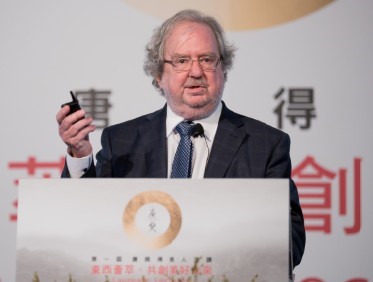 Allison Awarded 2015 Lasker Award for Cancer Immunotherapy
James P. Allison was named one of the recipients of the 2015 Lasker Award in Clinical Medical Research this September 8 for his groundbreaking work on CTLA-4. One of two scientists to identify CTLA-4 as an inhibitory receptor on T-cells in 1995, Allison was the first to recognize and test it as a potential target for cancer therapy.
The Lasker Award is only the most recent in a line of awards and recognitions Allison has won for his work in immunotherapy. In 2014 he was a recipient of the Breakthrough Prize in Life Sciences, the Louisa Gross Horwitz Prize, the Gardiner Foundation International Award, and he was a joint recipient along with Tasuku Honjo of the inaugural Tang Prize in Biopharmaceutical Science.
Read full story here>>
|
|
  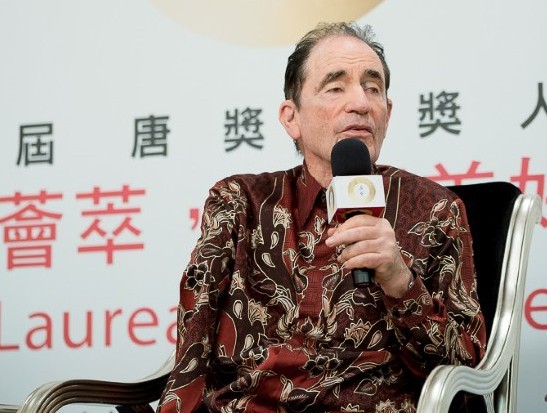 Sachs to Speak on Sustainability at TWAS 26th General Meeting
Laureate in Rule of Law Albie Sachs has been invited to speak at the TWAS 26th General Meeting this year in Vienna. His talk will focus on poverty reduction within the framework of sustainable development.
"Godmother of Sustainable Development" Gro Harlem Brundtland identifies poverty reduction as a crucial part of the Three Pillars of Sustainable Development: the Economic, Social, and Environmental. The question of sustainable development thus becomes one of sustainable and equitable development. This often neglected aspect of sustainability will be an important part of Sachs' speech and an essential factor in future development.
TWAS was founded in 1983 under the leadership of Pakistani Nobel laureate Abdus Salam, and aims to promote science and sustainability in the developing world.
Visit the TWAS website >>
|
|
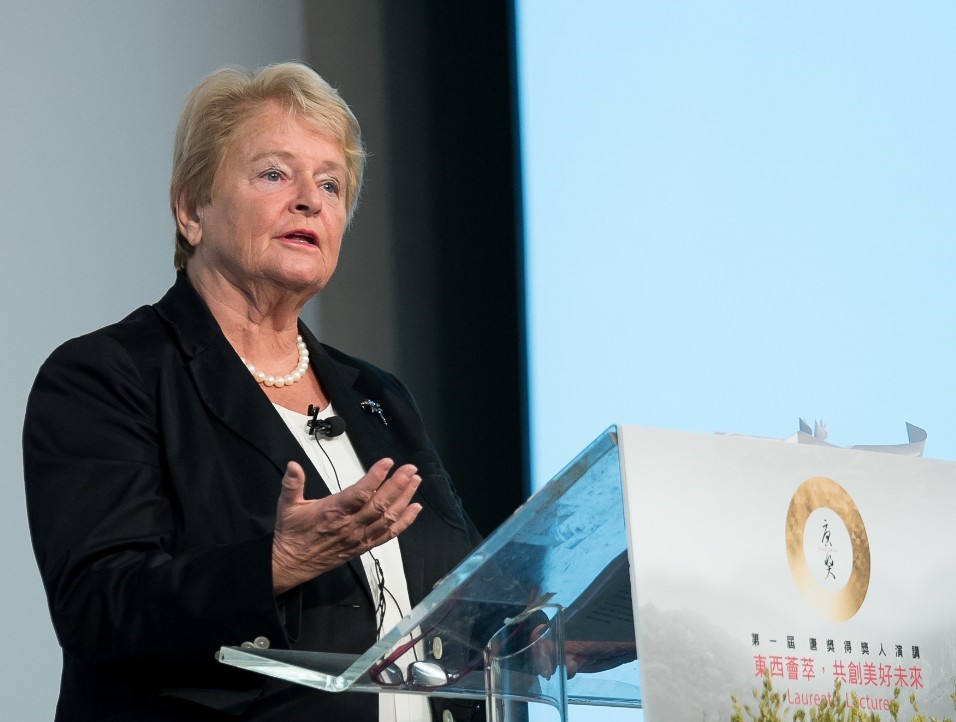   Climate Agreement at COP21 a Crucial Point in Global Sustainability, says Brundtland
December 2015 is a crucial month for the sustainable development field. At COP21 Paris, issues of climate change, renewables, and fossil fuel subsidies will be on the table for discussion. Results from these talks will take effect as early as 2020, so resolutions made at this convention could mean positive change for the immediate future.
Gro Harlem Brundtland, one of the world's leading proponents of sustainability, will attend the event to encourage countries to develop innovative and equitable solutions for energy and climate change.
Visit the official COP21 website>>
|
|
  Tang Prize is Now on Facebook
For the latest news on the Tang Prize and the laureates, as well as occasional promotional events, visit the Tang Prize Facebook fan page here:
https://www.facebook.com/tangprize>>
|
|
|
|
|
| |
 |
| Tang Prize Foundation Newsletter, Issue 3, September 2015 |
| |
|
